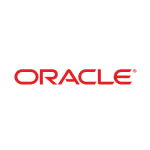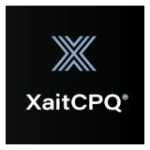All-in-One CPQ knowledge hub
BOOST REVENUE WITH
CPQ INTEGRATIONS
Unlock the potential of CPQ solutions with detailed insights and comparisons of top vendors, guiding your optimal choice.
Streamline Your Quoting and
Ordering Process with CPQ
CPQ (Configure, Price, Quote) software is a powerful solution that can simplify the quote and order creation process for businesses that deal with customizable products or complex bulk discounts. This software combines data from various aspects of a business, such as product variations, trade rules, compliance regulations, customer requirements, and order fulfillment, to provide accurate and efficient quotes and orders. By integrating with CRM software, CPQ ensures seamless data transfer and eliminates the risk of information corruption or loss, thereby enhancing the customer journey.
CPQ Solutions Adapted to Your Business Scale
Explore how CPQ software aligns with your company’s scale. Our guide breaks down into three sections: CPQ for enterprises, mid-market, and SMBs. Find tailored insights and recommended solutions to match the specific demands of your business, whether you’re expanding, scaling, or optimizing.
CPQ Software Designed for Your Industry’s Requirements
CPQ Analyst Insights
A new editorial section from CPQ Integrations, sharing what operators and GTM leaders are saying about the future of revenue execution. CPQ Analyst Insights explores how AI and composable architecture are transforming CPQ from record-keeping systems into intelligent, connected revenue engines.
Stay current with the latest perspectives, analysis, and operator-driven insights shaping the next generation of CPQ and revenue technology.
Latest from CPQ Analyst Insights
What is CPQ?
CPQ (Configure, Price, Quote) is software that simplifies the product definition process by streamlining the quote creation process for businesses with customizable products or complex bulk discounts. By integrating with CRM software, CPQ ensures seamless data transfer and eliminates the risk of information corruption or loss.
Benefits of Integrating
CRM and CPQ
You get many benefits from integrating your CRM and CPQ, not the least of which is the easy transfer of data without fear of corruption or loss. However, other benefits aren’t as obvious.
Increased Sales Efficiency
Integrating CPQ into your sales process streamlines the complex process of preparing customized quotes while reducing configuration and pricing errors that can result in lost deals.
Quicker Sales Cycles
CPQ automation reduces the time required to configure products, quote prices, and process orders. Faster response to customer requests speeds up the sales cycle and improves the buying experience.
More Deals Closed
When sales teams provide personalized solutions that meet customers’ precise specifications, they achieve higher win rates and faster time-to-close.
Improved Insights
With CPQ software integration with your CRM, you can see far more of the sales pipeline than you would with spreadsheets and siloed data. The information is centrally logged and can be cross-referenced by your CRM, for one source of truth about deals.
Creating Custom Links
CPQ-CRM integration enables customers to access product information quickly to make informed decisions. Additionally, CPQ solutions allow customers to visualize their configured product in real-time on screen or via virtual reality technology for an interactive experience that boosts buyer confidence.
How to Integrate CPQ in Your CRM
Integrating CPQ and CRM systems can help businesses achieve seamless and efficient data transfer, improve workflow, and remove the need for clunky protocols. There are three primary ways to achieve this integration:
Creating Custom Links
This is the cheapest and perhaps the most straightforward means of achieving integration, at least if you have the technical know-how. It involves coding a link between the two systems yourself. However, keep in mind that the resulting links will probably need to be redone every time there’s a software update on either end. Unless you deal exclusively with legacy software, this method is a stop-gap solution at best.
Purchasing a CPQ With Pre-Existing Integration
If you have a CRM that’s capable of it, you can always purchase a CPQ package that’s compatible. The downside here is that you’re often limited in your choice of CPQ, and since each software package will boast different features depending on its target audience, you might not get the ones you want and will have to settle for an inferior option.
Purchasing an API Solution
An API, or Application Programming Interface, is a solution that can link two pieces of software no matter how different they are. APIs are the most complete and flexible solution to integrating your CPQ and CRM, though they are expensive. If you’re after quality and ease of use, and you have the budget, an API should be your goal.
CPQ Integration Challenges
While the benefits of CPQ outweigh the difficulties of integrating with other platforms, there are some challenges to consider. These include data synchronization, customization requirements, and security concerns. However, selecting a customizable CPQ solution with high implementation and ease-of-use ratings, an experienced implementation team, and excellent data security will ensure you have a smooth implementation.
CPQ Integration Best Practices
Properly integrating CRM and CPQ can help streamline the sales process, optimize customer experiences, and increase sales by providing a comprehensive view of the customer across both platforms. When you’re ready to integrate CPQ into your sales stack, follow these steps for the smoothest implementation and fastest ramp time.
- Assess your integration needs to ensure the CPQ you select has the features you need and can scale with your business growth.
- Choose the right integration approach to minimize disruption and downtime in your technology and staff.
- Prioritize data synchronization. Your CPQ should provide secure data sharing between the two systems and automated synchronization capabilities.
- Use an experienced integration partner if your IT team lacks expertise in CPQ and CRM and configuring them correctly for optimal performance.
- Test and validate your integration for optimal data accuracy and quality control.
Types of CPQ Integrations
Integrating CPQ with CRM is only the beginning. CPQ also integrates with ERP, e-commerce, and other third-party applications to provide a unified customer experience from quote to order.
- CRM integration – streamline the buying experience with synchronized customer data
- ERP integration – ensure consistent pricing and product data across channels or localized pricing and products between regions
- E-commerce integration – provide a self-service platform for customized product configuration and personalized pricing and quotes
- Other third-party integration – enables other efficiencies within the quoting process, such as automated order validation, automatic billing, and order tracking.
Top CPQ vendors
Conga CPQ
DealHub CPQ
Experlogix
Epicor CPQ
Infor CPQ
PandaDoc CPQ
Oracle CPQ
PROS CPQ
Salesforce CPQ (End-of-Sale)
SAP CPQ
XaitCPQ
How to Choose the Right CPQ Software
Choosing the right CPQ software is crucial to the success of any business looking to streamline their sales process. The following are some of the key factors to consider when selecting CPQ software:
Industry-specific functionality
Choose a CPQ software that is specifically designed for your industry to ensure that it can handle the unique complexities of your product offerings, pricing structures, and sales process.
Integration with other systems
Ensure that the CPQ software can integrate with other systems and software tools, such as your CRM, ERP, and e-commerce platforms, to enable seamless data transfer and avoid data silos.
Customizability
Choose a CPQ software that can be customized to meet the specific needs of your business, including the ability to add custom fields, rules, and workflows.
Scalability
Ensure that the CPQ software can grow and adapt with your business as your needs evolve over time.
Market Stats
The global CPQ market in 2020 was estimated to be $1.6 billion and is expected to reach $3.9 billion by 2026. This is likely driven in part by the COVID-19 pandemic, with remote orders making software more attractive.
The market remains split, with no one CPQ creator having more than a 17% share. This is great news for innovators, as a more open and creative market will prevent the strangling of the tech revolution akin to what occurred when Microsoft took over.
According to a Salesforce survey, 48% of sales teams use a CPQ package as of 2020, a 10% increase in numbers from 2018.
Conclusion
CPQ software is a powerful tool that can streamline the sales process for businesses with customizable products or complex bulk discounts. By integrating CPQ with a CRM system, businesses can enjoy numerous benefits, including faster sales cycles, increased revenue, and improved insights. When selecting a CPQ vendor, businesses should consider factors such as industry-specific functionality, integration capabilities, customizability, and scalability to ensure that they choose the right tool for their needs.

Rhonda Bavaro excels in boosting SaaS companies’ growth through innovative content marketing, thriving in the dynamic sales tech industry amidst evolving technologies that drive revenue acceleration.

Andrew is a professional copywriter with expertise in creating content focused on business-to-business (B2B) software. He conducts research and produces articles that provide valuable insights and information to his readers.
FAQs
CPQ stands for Configure, Price, and Quote. It is a business process used to streamline the sales process by providing customers with automated quotes based on their product or service configurations. CPQ solutions take into account customer needs, such as configurations, pricing rules, taxes, discounts, and location. By leveraging CPQ solutions, businesses can quickly customize offerings for customers and provide accurate sales quotes, contracts, proposals, and orders.
CPQ tools are sales tools used to quickly and accurately generate quotes for orders. They’re often used in parallel with CRM platforms and integrate with other business operations solutions, such as ERP and billing platforms. A CPQ solution has built-in workflow management capabilities that help manage complex configurations while also simplifying order processing tasks such as discounts, credit checks, pre-payment requirements, shipping calculations, and more. This helps reduce costs while improving operational efficiency throughout the entire quoting and ordering process—from initial contact through delivery.
CPQ is used across a wide range of industries, including manufacturing, retail, financial services, and technology. In the manufacturing industry, CPQ solutions are often used to provide accurate product configuration and pricing information to customers. For example, if a customer is looking for a specific type of car part that includes several customization options such as size, color, and materials, then a CPQ solution will generate an automated quote based on their selections. In the retail industry, CPQ solutions are used to provide accurate pricing information for products being sold in stores or online. For instance, if a customer wants to purchase an item with several options available such as size and color, then the CPQ solution will generate an automated quote based on their selections.
“Configure, Price, Quote” refers to the process of configuring the products and services to the customers’ needs, pricing them according to the CPQ software’s rules, then generating an itemized quote for the customer to view. The CPQ process typically begins when a customer requests information about a product or service from a company representative. The company representative then uses the CPQ system to generate a personalized quote, which includes all relevant configuration options, along with pricing and delivery terms.
It’s the process of inserting a CPQ into your existing workflow. CPQ implementation requires planning and involves several steps. First, you must choose a vendor whose software meets your needs and is compatible with your existing systems. You may also need to configure the software for your industry or company requirements. After choosing the vendor, you will integrate the CPQ software with your existing technology, including ERP, CRM, billing, and inventory tracking.
The next step is to create a workflow for your process – this can be done by outlining each step in your quote configuration process, including data entry fields, pricing models, and conditions for discounts or promotions. Once this is done, you can move on to configuring the UI of the CPQ system according to company branding and customer service requirements. The final stage of implementation involves testing out the system by authorizing users and training them on how they can use it efficiently.
No, CPQ is not inherently a part of CRM. The two systems can link to each other, and several CRM systems have tools for supporting a CPQ, but they are fundamentally two distinct entities.
Depending on the type of CPQ solution you choose, coding requirements may vary. Some CPQ solutions require more coding than others as they may offer more customization options. On the other hand, certain CPQ solutions offer a ‘no-code’ approach where there are fewer customization options available but do not require any coding whatsoever.


















